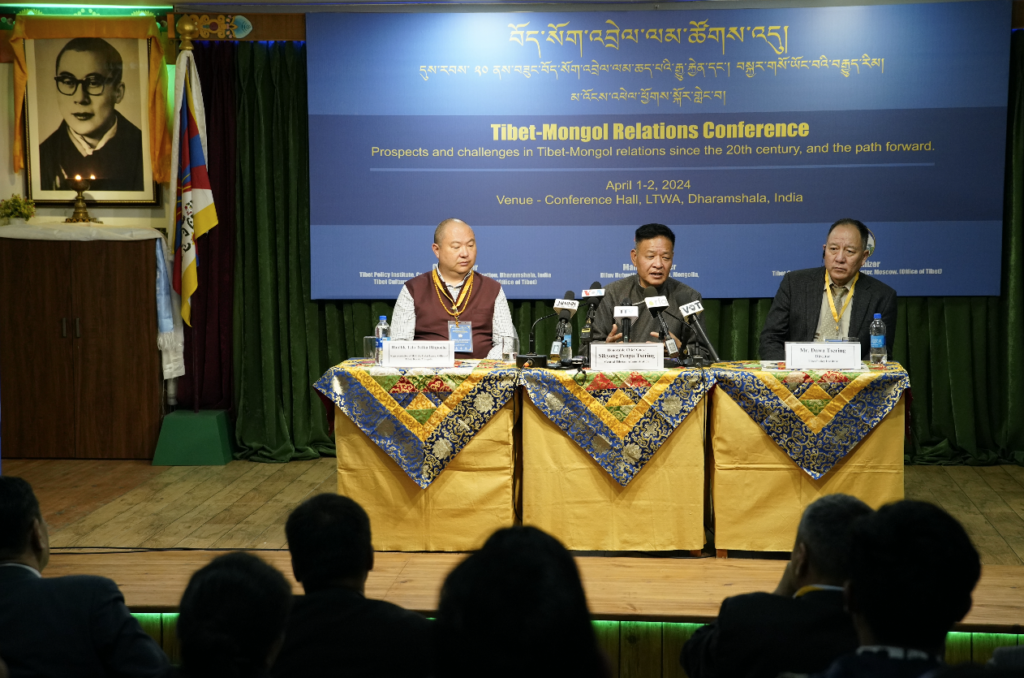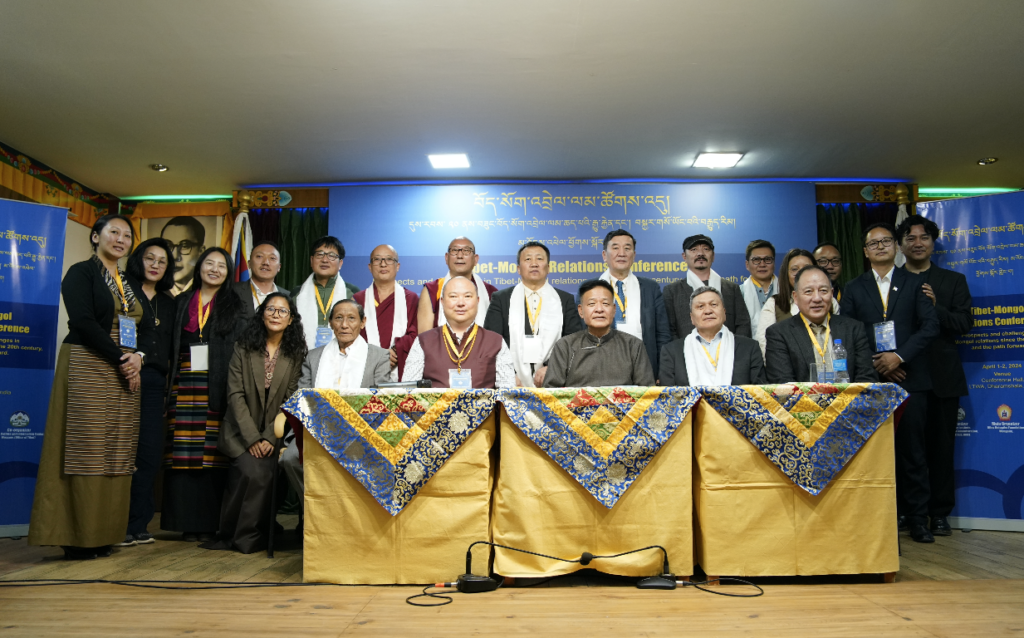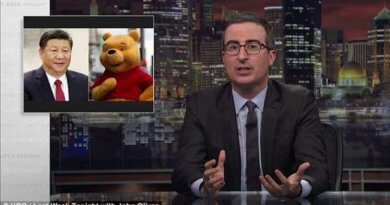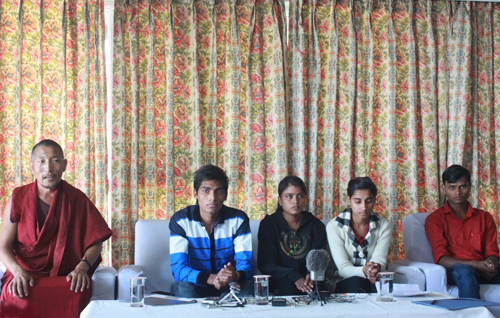Tibet-Mongol Relations Conference Concluded

By Tsering Choephel
DHARAMSALA 2 April: A two-day Tibet-Mongol Relations Conference, held at the Library of Tibetan Works and Archives, concluded today with Penpa Tsering, the President (Sikyong) of the Central Tibetan Administration (CTA), attending as the chief guest of honour.
The conference titled “Prospects and Challenges in Tibet-Mongol Relations since the 20th Century, and the Path Forward” was collectively organised by the Diluv Hutugthu Foundation in Mongolia, the CTA’s Tibet Policy Institute (TPI) and the Office of Tibet in Moscow. The conference is the first of its kind, with Mongolian and Tibetan scholars presenting their research papers on the ties between the two countries, spanning culture, religion, and politics throughout history.
Telo Rinpoche, the representative from the Office of Tibet in Moscow, in his concluding remarks, called on TPI to form a Tibet-Mongolia research group and “bring them to Mongolia for a month to explore Mongolia’s historical archives from the early 20th Century.” With the absence of such archival documents in exile and access to those in Tibet impossible under China’s occupation, the Mongolian archives could serve the research to gain insight, says Telo Rinpoche. He expressed great hope and a bright future for Mongol-Tibet ties in the future through such exchanges.
Dawa Tsering, the Director of TPI, said that this scholarly collaboration between Tibetans and Mongolians is the beginning of many more to come. He pledged that TPI will publish the research papers of the attending scholars in the form of a book, adding that this book would further cement the ties and reach a larger number of people about the historical facts of the two countries.
Sikyong expressed appreciation for the organisers of the conference. To the attending scholars from Mongolia, he outlined the CTA’s current policy of the Middle Way Approach in finding a resolution to Tibet’s plight. He emphasised the significance of the historical facts of Tibet’s independence, stating that the CTA has taken a change in strategy by “focusing on the historical status of Tibet,” meaning that Tibet had been an independent nation until the invasion by China.

In conjunction with the focus shift, Sikyong spoke about the Tibet Resolve Act, which cleared the US House of Representatives on 15 February this year. The bill primarily seeks to pressure Beijing to resume negotiations with the Dalai Lama’s envoys or the democratically elected leaders of the Tibetan people, meaning the leaders of the Central Tibetan Administration (CTA), the Tibetan government in exile. Significantly, it recognises the traditional three provinces of Tibet as proper Tibet, in opposition to China’s demarcation of Tibet.





